I have a confession that I'm going to make up front: I am a shopaholic. I've been to Japan three times, and shopping has been a high priority every trip. Needless to say, I've picked up some wisdom about where and how to shop in Tokyo, which I am now going to pass along to you. After reading this, you should be able to shop without dropping on your trip to Japan.
Where To Shop When You're Not Sure What You Want
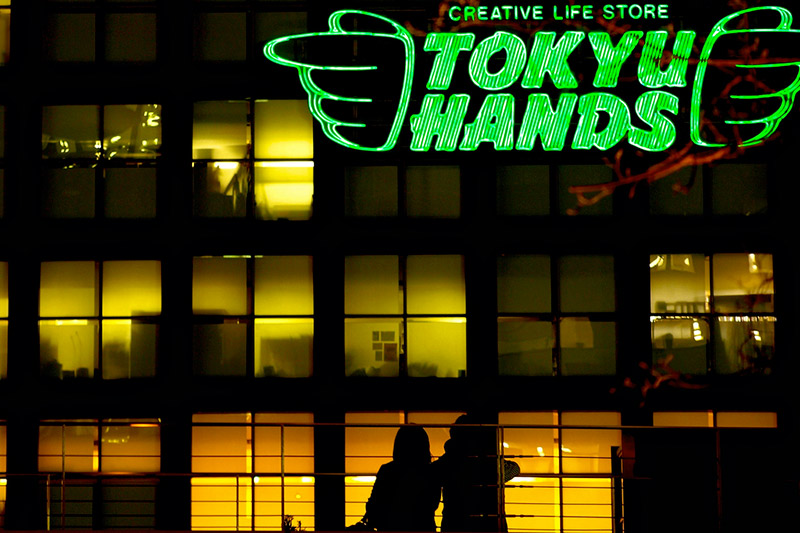
There are a few places that I hit up when I'm in Tokyo when I want to shop for nothing in particular. Tokyu Hands is a great destination for this. It's a chain of stores that can be found all over Japan, with multiple locations in Tokyo itself. I've bought everything from cardboard boxes to board games and kitchen gadgets there. As they say on their English website, "From basic products that support the foundations of the customer's life to products that provide pleasure and enrichment, Tokyu Hands handles a wide variety of merchandise that meets diversified customer demands." Truth.
Japanese department stores (depaato デパート) are also great places to go when you don't have a particular item in mind. I don't know what department stores are like outside Japan and the USA, but the Japanese depaato are awesome and quite different from their American counterparts. If you're out and about and want to visit a depaato but have no clue where one is, look for a large train station, as stations frequently have department stores attached. How are these shopping plazas different from the department stores back home? Every one I've been in has been multiple floors – seven to eleven stories is not unusual at all. The basement floor is generally devoted to premade/specialty foods, while the top floor normally has restaurants. The other floors of the depaato will be devoted to a variety of goods; most will have a map in English letting you know what items are available on each floor. Don't forget to visit the department store's roof, which may have more shopping, special events, and/or spectacular views; in the summer, many depaato offer "beer gardens" on the roof.
Amped Up Shopping
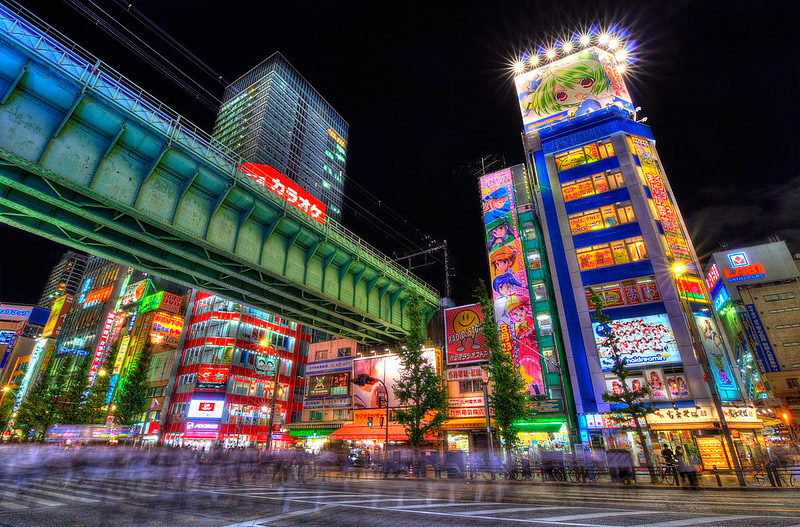
Like many visitors to Japan, you may be looking to score some electronics while you're there. Head to Akihabara, the area of Tokyo known for electronics and maid cafes. If you're in Akihabara but don't know what you want, start at Yodabashi Akiba. If you're in a store, ask the store employees for guidance (this does require finding a way around any language barriers). Finally, a bit of advice from one of my friends: do your research ahead of time and have a good idea of what you want before you head into Akihabara. That way you won't get overwhelmed with all the choices. Finally, although it's not in Akihabara, and probably not a great place for deals, I love visiting the Sony showroom in Ginza. They have all their newest and greatest gadgets on display, and you can toy around with most of them.
Trading Paper For Paper
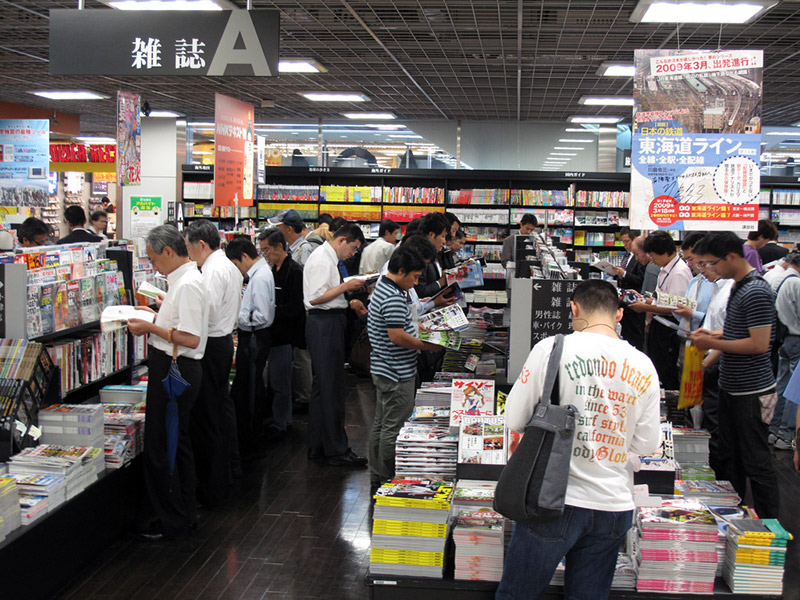
Another confession: I love books. I've yet to leave Tokyo without packing a suitcase or box full of books to lug back home. Some of my favorite places to shop for the printed word: Kinokuniya, Book Off, and Tsutaya. Kinokuniya sells new books and generally has a huge selection, Book Off sells used books (and other media), and Tsutaya's main business model is rental – but they also sell books and other media. If you really love books and want a different fix than the above-mentioned stores can offer, wander over to Jimbocho, a Tokyo neighborhood known for its booksellers, publishing houses, and antiques.
Goodies For The Folks Back Home
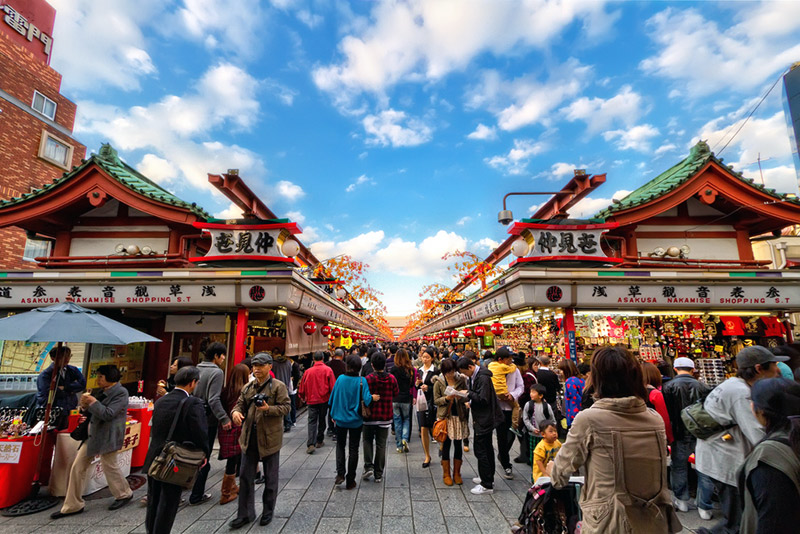
There's no need to do your souvenir shopping at the airport. You can find better stuff – at better prices – with a little bit of effort. If you're strapped for time, my one-stop recommendation is the Oriental Bazaar in Harajuku. It's a large store with a variety of lovely and traditional things at prices that should fit most budgets. If you have more time, Nakamise-dori, the street that leads to Sensoji temple in Asakusa, is lined with shops that sell everything from mass-produced tourist kitsch to toys to high-quality knives – and lots more in between.
Although prices may be higher than at the Oriental Bazaar or on Nakamise-dori, I've also had great success at museum gift shops. Even if you're uninterested in the museum itself, many of the gift stores allow entry without paying for admission to the museum.
Everyone Needs Plastic Food Models And Other Neat Stuff
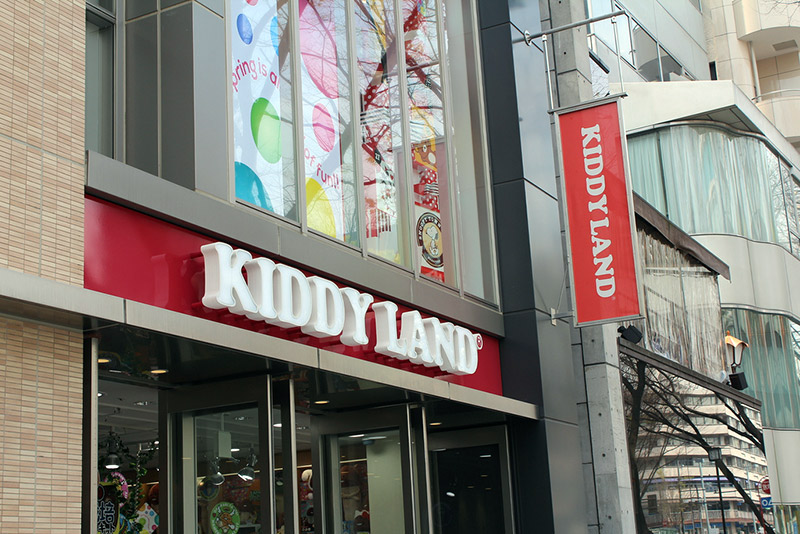
Okay, it's possible that, in fact, pretty much no one needs plastic food models. But they're awesome, and you can buy them – in everything from full size to keychain – on Kappabashi-dori, to the west of Asakusa. Several stores in the area sell them, as well as just about every other bit of Japanese kitchen equipment that you could ever want.
If kitchen equipment and plastic food models don't make your heart race, but Evangelion merchandise and Sanrio products do, check out Kiddy Land, just down the street from the Oriental Bazaar (they have a few other locations as well). Kiddy Land sells oodles of toys, anime products, and adorable things.
If offbeat describes what you're looking for, you should visit Don Quijote, a chain of stores known for selling a huge variety of goods. When you want something that makes the folks back home go "huh?", Don Quijote is your one-stop best bet.
Another chain that you'll find all over Tokyo is Condomania, a store that sells… condoms. Lots of condoms. They also sell lubricants and plenty of gag/joke gifts. Despite the racy name, Condomania has always seemed to me like a Spencer's Gifts with less t-shirts and more prophylactics. This, of course, means that there are lots of options for slightly off-color gifts. Or maybe Hello Kitty condoms are your thing. I won't judge. Much.
Finally, if you've been dying to dress like a Visual Kei1 superstar or are just curious about what Japanese teenagers are into, wander around Harajuku's Takeshita-dori. Takeshita-dori and the streets surrounding it are the traditional mecca of teenagers in Tokyo, although this is slowly changing.
One Man's Trash Is Great For You
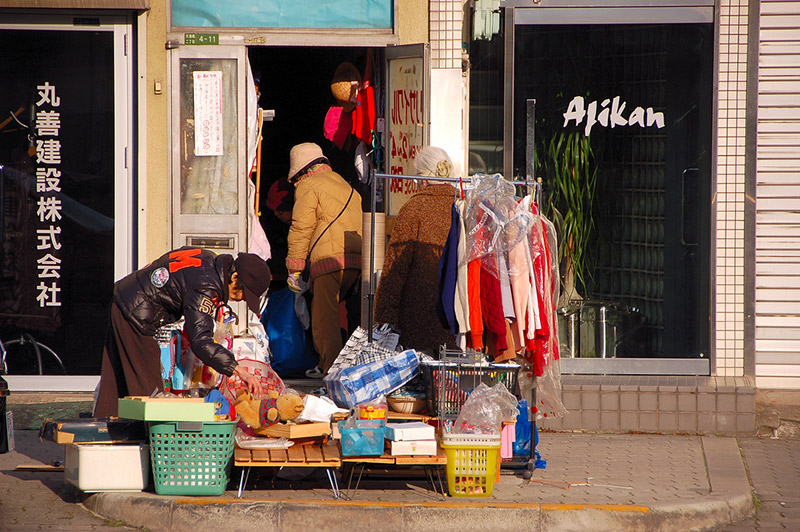
Some of the best deals that you can find in Tokyo mean shopping second-hand. My absolute favorite second-hand store has already been mentioned: Book Off. CDs, books, and games can all be had for a fraction of their retail price at Book Off, which has locations all over Japan.
If you're into retro gaming, a visit to Super Potato is an absolute must. They sell video games of all generations and platforms for reasonable prices (you'll probably find cheaper prices at Book Off, but less selection). If you have the right group of friends, these games can double as gifts. I wrapped up and gifted out lots of original Final Fantasy games after my last trip to Japan!
Although it's not quite as well used as it is in the USA, craigslist.org does have a site for Tokyo. Just like in the States, there are lots of people selling lots of things for much less than retail (or giving them away for free).
Tokyo also has multiple flea markets, frequently run by local temples. The JNTO has a list of some of them. If you're just visiting Tokyo, these can be tricky to time but are totally worth it.
Life Lessons
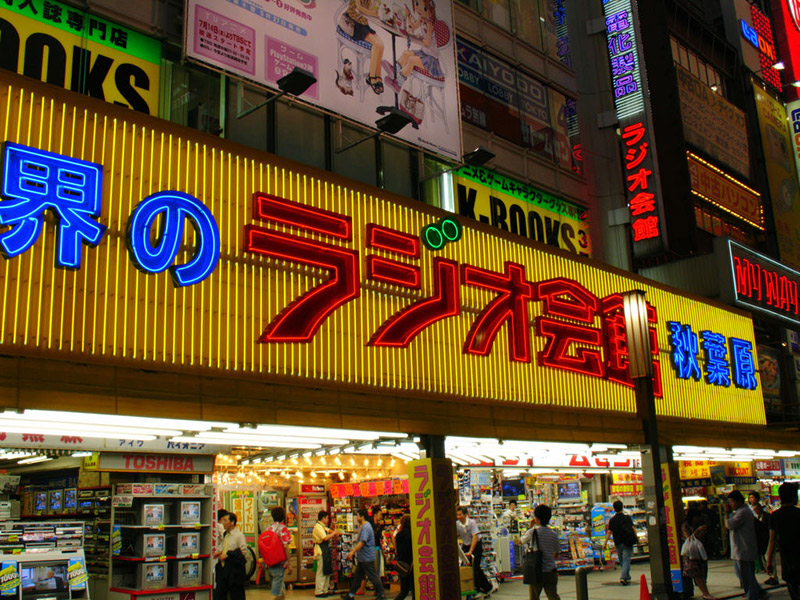
Finally, I'd like to impart some general Tokyo shopping advice to you. Most of this I learned the hard (or sometimes easy-but-random) way. No need for you to reinvent the wheel!
Duty free shopping is available at lots of bigger stores, including the Sony showroom, most department stores, Yodabashi Akiba, and Tokyu Hands. The procedure for how to buy things duty free will vary from store to store, but will always involve showing your passport to prove that you're just visiting Japan. Ask an employee or check the store's website to find out how to go duty-free in a particular store.
There are a few services that stores offer that you might want to consider taking advantage of, most notably mailing and wrapping. Some stores will mail things for you – maybe all the way back home or at least back to your hotel. Obviously, a fee will apply, but for bulky items, this is something that's worth inquiring about. Japanese stores also tend to do a really nice job of wrapping your items, and if you tell the employee that the item is a gift, they'll frequently do an extra nice wrapping job for free.
Another bit of wisdom: cardboard boxes are your friend. If you find yourself with more than will fit in your suitcase, invest in a cardboard box or two. Check your airline's rules about how large/heavy a checked-in item can be, then buy a box that meets those guidelines. I'm sure there are multiple places to buy cardboard boxes in Tokyo, but I've gotten mine at Tokyu Hands – note that the staff is not used to tourists trying to buy cardboard boxes, so if you can't find them on your own, ask someone for help and don't be afraid to use pictures of cardboard boxes.
The public transportation system in Tokyo is awesome enough that you should never need to take a taxi somewhere, but don't be afraid to use one when you're laden down with your day's purchases. Sometimes it's absolutely worth it. Another note about getting things back to your hotel: the barrier guides in train stations are super useful. These will tell you where the escalators and elevators are located, which is awesome when you've been out shopping for ten hours and are carrying heavy shopping bags. The Tokyo Metro website also lists each station and whether escalators or elevators are present and where they are in the station. This information is currently available only in Japanese, so a physical guide may still be your best bet if you don't read Japanese and aren't comfortable poking around the website.
If you know you want a particular item but you're having trouble finding it, don't be afraid to use Amazon Japan. When I realized I needed a second suitcase my last trip (in addition to a cardboard box!), I hopped on Amazon, picked one out, and had it delivered to my hotel. It showed up the same day I ordered it for no additional cost. Of course, Amazon Japan will ship to your home country as well, but shipping costs are much, much higher.
This isn't really advice, but Japanese shopping tends to be very seasonal. In autumn, you'll find goods covered with leaves and other autumnal images. In winter, snowmen and winter-related things. So if you want something that's seasonal, be aware that it may be hard to find out of season. Sometimes there are special seasonal shopping treats, like fukubukuro 福袋, a New Year's tradition where merchants create mystery bags of goodies; the items inside are generally substantially discounted. You get a good deal and a (hopefully) pleasant surprise all at once!
Shopping Ahoy!
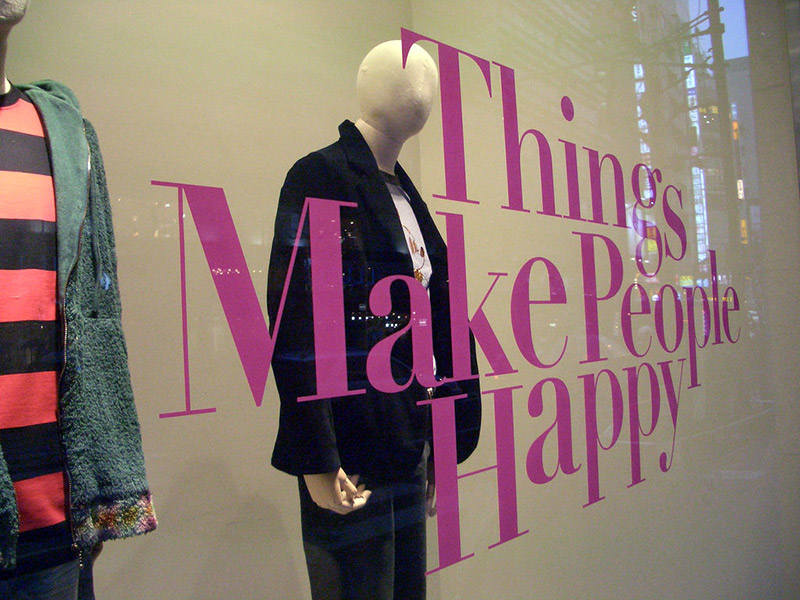
I hope the information here has left you better equipped to shop to your heart's content in Tokyo. It's a great place to shop, and I'm sure others have plenty of advice as well. One final piece of advice from me: if you have the time, venture off the beaten path (or my suggested path, at least). Some great shopping experiences can be had just by walking into a store on a whim. However or wherever you shop, I hope you have a great time and score some awesome goodies!
-
A genre of Japanese rock known for flamboyant hairstyles, make-up, and costumes. ↩
